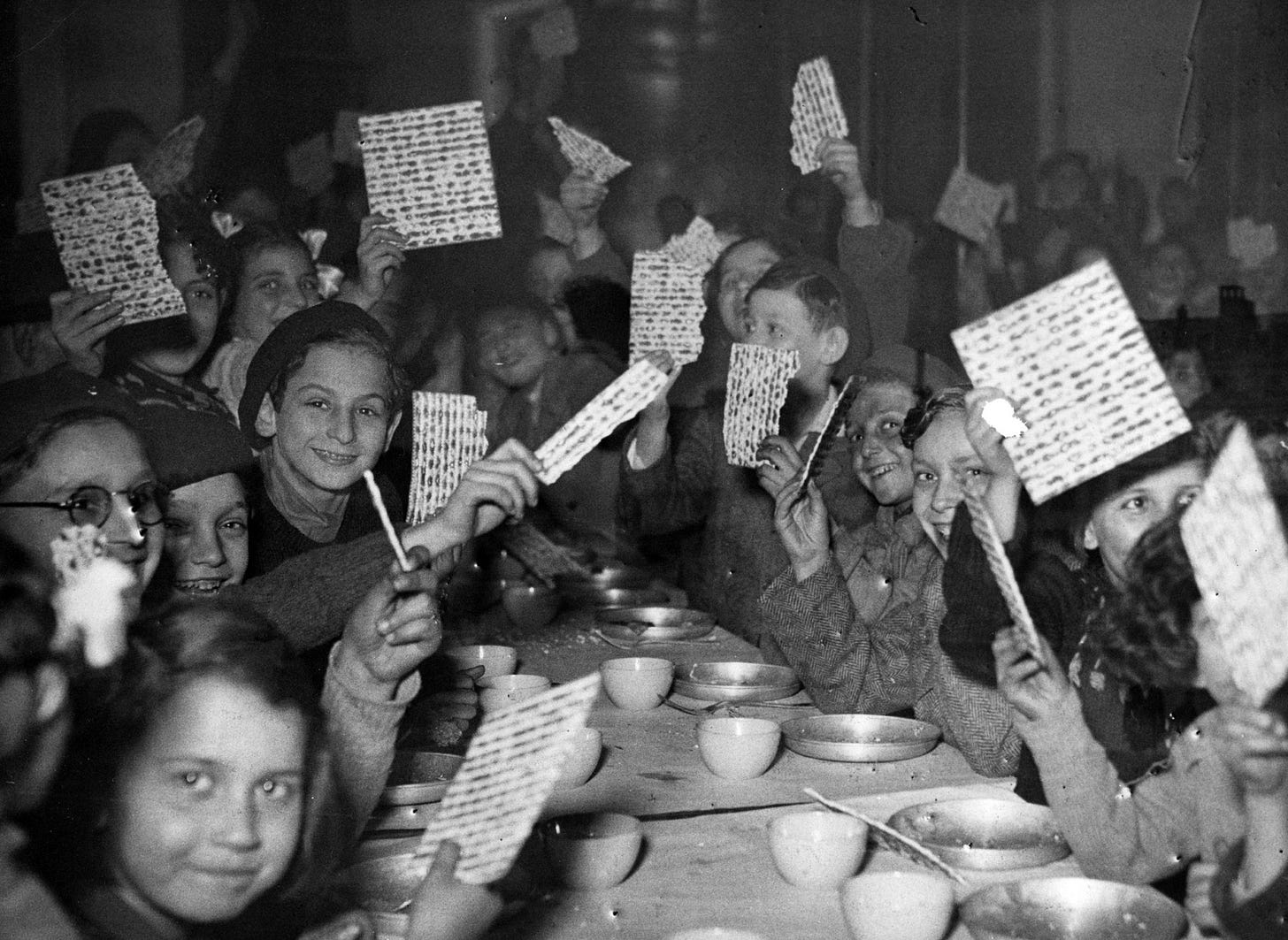On Saturday afternoon I watched The Prince of Egypt with my kids.
Inevitably, we got to the part in the movie that I knew would be tricky for them to watch and understand: the tenth plague. In the movie, a light from heaven comes down and traverses Egypt. In haunting silence, the movie shows the light going from house to house, skipping the Hebrew homes with blood-stained doorframes, and going into the Egyptian homes, taking the lives of the first-born children.
My kids asked me what was happening, and I told them: “This is the 10th plague. Because the Egyptians won’t let the Hebrews go, God is killing their first-born children.”
It took a few minutes, but suddenly my son said: "But Aba, I thought God was good?"
Oof. The proverbial parenting curveball.

I've had three days, two Passover Seders, and one long, reflective weekend to think about how to answer him. Because the truth is, his question isn’t new. It’s the very heartbeat of Jewish history.
Our people have asked versions of that question ever since, well, probably since Egypt. There are a few questions in my head: If God is good, why do bad things keep happening? If we are the chosen people, why have we been chosen for so much suffering? Also, why does God do bad things to others? It is difficult for a child to wrap his head around, let alone an adult.
A history of suffering
Over these past few days, between cups of wine, bites of matzah, and attempts to keep toddlers from dismantling the seder plate, I've thought deeply about the answers offered by generations before us. Some sages said suffering was a test, refining us into something greater. Others suggested it was punishment or purification. The Hasidic masters saw hardship as hidden opportunities for connection with God, while the rabbis of the Talmud sometimes simply sighed: “This is one of the things we cannot fully understand.”
Rabbi Jonathan Sacks taught something profound: being Jewish isn't about escaping suffering, it's about how we respond to it. Jews shouldn’t say "Why me?" - instead, we should ask, "Now that this has happened, what am I called upon to do?" It’s a Jewish version of Stoicism, that doesn’t seek to change the situation, but rather asks how best can we respond to a situation. That is a big difference. That's why, even in Auschwitz, Jews risked death to light Chanukah candles. It's why Soviet prisoners secretly celebrated Pesach. It's why ghettos had secret libraries and quiet Purim plays. To be Jewish is to find meaning even in the heart of darkness.

But back to Egypt, and to my son's difficult question.
Justice That Hurts
The death of the firstborn is one of the most troubling parts of the Exodus story. It forces us to confront the harsh reality of justice. The plague wasn't random cruelty. It came after nine warnings - nine opportunities that Pharaoh ignored. We read that each time, Pharaoh hardened his heart. Sometimes, God hardened it further - not as punishment, but to show the world Pharaoh's true nature: unbending tyranny.
Or as the BBC would report it today: 80-year-old Zionist colonialist commits unapologetic Egyptian genocide.
Justice, though necessary, is never comfortable. Sometimes God appears as the gentle shepherd; other times, as a fiery sword. In Egypt, justice demanded the latter.
But Judaism doesn't celebrate even justified suffering. When the Egyptians drowned in the sea, the angels began singing—until God stopped them, declaring: “How dare you sing for joy when my creations are dying?” Justice can be necessary, but gloating never is. The sentiment was echoed later by Golda Meir, who said, "We do not rejoice in victories. We rejoice when a new kind of cotton is grown and when strawberries bloom in Israel."
Justice Without Joy: Post 10/7
This timeless lesson feels especially urgent today.
After 10/7, our generation tasted again the bitter cup of Jewish suffering. We saw atrocities we hoped had been relegated to the dustbin of history. Families massacred, children kidnapped, entire communities shattered. Responding to such a crime wasn’t just our right: it became our obligation.
The vast majority of the international Jewish population supports the war in Gaza wholeheartedly not because we relish war, but because we believe deeply in justice and the moral necessity of defending our people. Yet, even as we fight, we don't celebrate Palestinian suffering. Our hearts ache for innocent lives caught in the horrors Hamas brought upon both our peoples. We mourn civilian casualties on both sides because the Jewish way is never to rejoice in another’s pain, even when justice is clear. Unlike our enemies who hand out candies when Jews die, we do no such thing. Death is tragic, and we only celebrate life.

Zionism as the Answer to an Ancient Cry
This compassion in justice is precisely why Zionism is not just a political movement, but also a spiritual response. For centuries, Jews asked: "How long, God?" Zionism is the modern answer. It says: no longer will we rely solely on mercy from Pharaohs, Shahs, Kings, Czars, or terrorists. Now, we rely on ourselves.
Israel's very existence is a miracle that affirms God's goodness. After exile, persecution, pogroms, and genocide, we came home. We revived Hebrew, rebuilt cities, and turned deserts into orchards. Zionism proves that our suffering had purpose—not merely survival, but rebirth. It is the sentiment echoed in the shehecheyanu blessing that we said at the start of the seder:
בָּרוּךְ אַתָּה, יְיָ אֱלֹהֵינוּ, מֶלֶךְ הָעוֹלָם, שֶׁהֶחֱיָנוּ וְקִיְּמָנוּ וְהִגִּיעָנוּ לַזְּמַן הַזֶּה.
Blessed are You, Lord our God, Sovereign of all, who has kept us alive, sustained us, and brought us to this day.
Of course God is good - look at all the things He has done for us.
Back to the movie
So, after three days, two seders, and a deep dive into theology that I think would make Rabbi Akiva proud, I turned to my children: “Your question is exactly the right one. Keep asking it, because it means you're thinking. God's goodness doesn't promise a pain-free life, and it is not necessarily kind to our enemies, but it does promise meaning. Even when things get tough, we find ways to rise, rebuild, and stay true to who we are.”
Someday, my son's children will ask him why the world has pain, why justice is hard, and whether God is good. I hope he’ll recall that quiet evening, sandwiched between seders and matzah crumbs, and answer with the stubborn optimism that's carried Jews from Egypt to Jerusalem, from despair to hope:
“Yes, God is good. And so are we, when we choose to be.”
That's all we can give our children: not a perfect answer, but a legacy of resilience, questions worth asking, and the courage to find answers together.
And perhaps, in that enduring Jewish stubbornness, which is our persistent insistence on finding meaning in suffering, joy in justice, and hope in hardship, we've finally discovered why we're called the chosen people.




Thank you